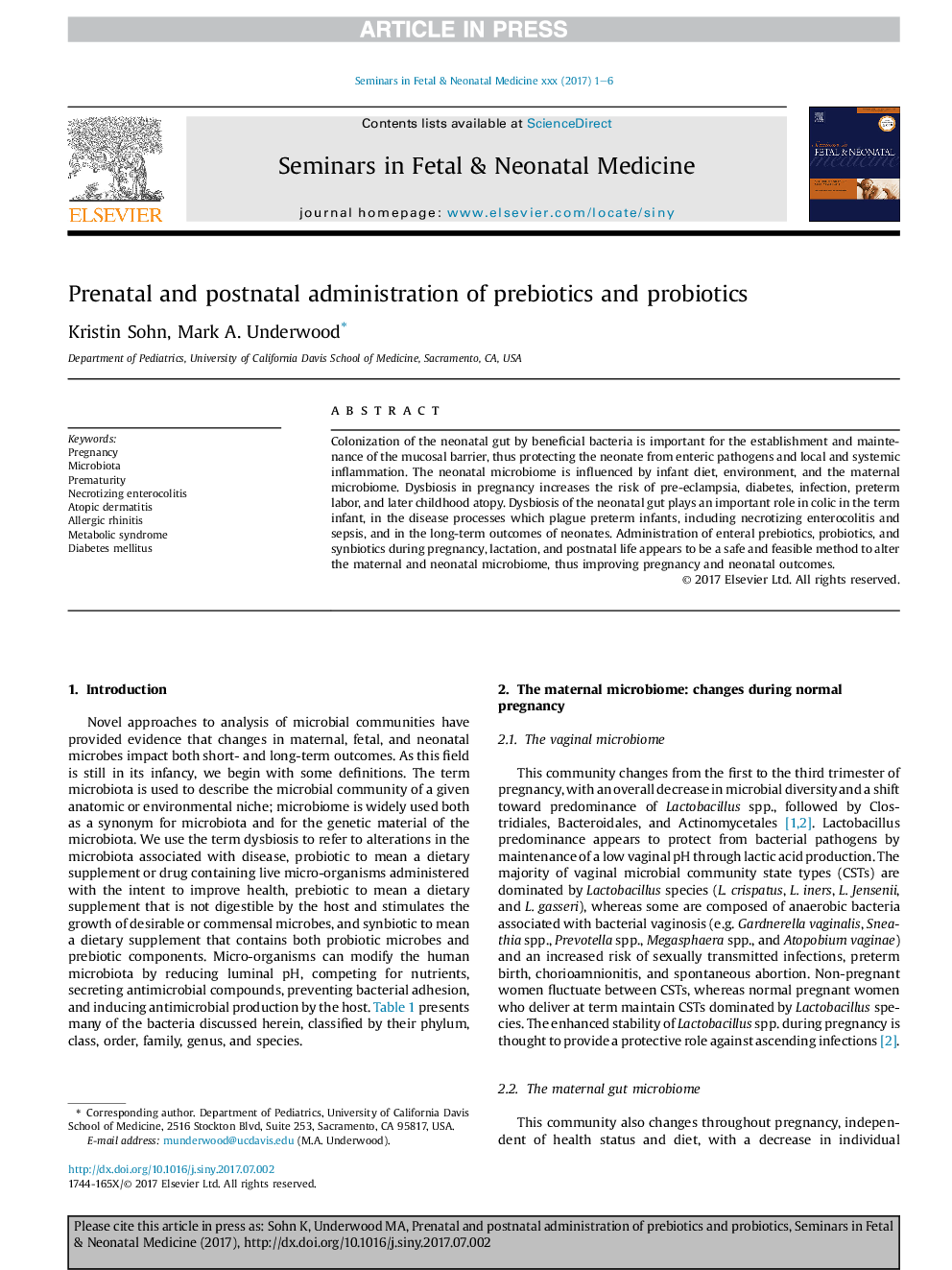| Article ID | Journal | Published Year | Pages | File Type |
|---|---|---|---|---|
| 5696867 | Seminars in Fetal and Neonatal Medicine | 2017 | 6 Pages |
Abstract
Colonization of the neonatal gut by beneficial bacteria is important for the establishment and maintenance of the mucosal barrier, thus protecting the neonate from enteric pathogens and local and systemic inflammation. The neonatal microbiome is influenced by infant diet, environment, and the maternal microbiome. Dysbiosis in pregnancy increases the risk of pre-eclampsia, diabetes, infection, preterm labor, and later childhood atopy. Dysbiosis of the neonatal gut plays an important role in colic in the term infant, in the disease processes which plague preterm infants, including necrotizing enterocolitis and sepsis, and in the long-term outcomes of neonates. Administration of enteral prebiotics, probiotics, and synbiotics during pregnancy, lactation, and postnatal life appears to be a safe and feasible method to alter the maternal and neonatal microbiome, thus improving pregnancy and neonatal outcomes.
Keywords
Related Topics
Health Sciences
Medicine and Dentistry
Obstetrics, Gynecology and Women's Health
Authors
Kristin Sohn, Mark A. Underwood,
